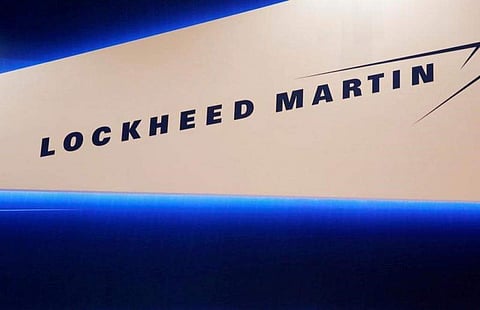

BEIJING: China on Tuesday announced sanctions on top American arms manufacturing firm Lockheed Martin in a retaliation to the US State Department's approval of a request by Taiwan for the recertification of PAC-3 air defence missiles built by the company.
"China firmly opposes US arms sales to Taiwan. We urge US to earnestly abide by the One-China principle, stop selling arms to Taiwan and cut its military ties with Taiwan, so that it will not cause further harm to bilateral ties, peace and security across the Taiwan straits," Chinese Foreign Ministry spokesman Zhao Lijian told a media briefing here.
His remarks comes days after the US State Department last week approved Taiwan's request for the recertification of its Patriot Advanced Capability-3 (PAC-3) air defence missiles at an estimated cost of USD 620 million.
In a statement on Thursday, the US Defence Security Cooperation Agency (DSCA) said Congress had already been notified of the possible sale.
According to US media reports quoting DSCA, Taiwan has asked to buy parts to refurbish its PAC-3 missiles to support an operational life of 30 years.
Lockheed Martin Corporation is the main contractor for the deal.
The Chinese Foreign Ministry spokesman said Beijing will impose sanctions on Lockheed Martin in retaliation.
"China has decided to take essential measures. We will impose sanctions on main contractor of this sale Lockheed Martin," he said.
Analysts say China's sanctions may be symbolic as Lockheed Martin doesn't sell any weapon systems to China.
On Monday, China imposed sanctions and visa bans on top US officials and politicians in the latest tit-for-tat confrontation in the steady deterioration of the relations between Washington and Beijing over Xinjiang and a host of other issues.
In retaliation to US sanctions and visa restrictions on three senior officials of the ruling Chinese Communist Party from Xinjiang for alleged human rights abuses targeting Muslim Uyghurs, China imposed sanctions against US Congressional-Executive Commission on China (CECC), US Ambassador at Large for International Religious Freedom Samuel Brownback, Congressman Chris Smith and top US senators Marco Rubio and Ted Cruz.
The CECC is headed by Rubio, a vocal critic of China.
The three are members of US President Donald Trump's Republican Party.
The US plans to sell PAC-3 missiles will not change the power balance across the Taiwan Straits, but will only give Taiwan secessionists false courage, state-run Global Times quoted Chinese experts as saying.
This marks the second time that the US has approved arms sales to Taiwan this year.
The US had previously approved the sale of 18 MK-48 Mod 6 advanced technology heavyweight torpedoes to Taiwan on May 20.
China claims Taiwan part of it and tensions between the Chinese mainland and Taipei were on the rise in recent months after the re-election of Taiwanese President Tsai Ing-wen who is a firm advocate of Taiwan's independence.
Already in service, the PAC-3 air defence missiles are an important weapon in Taiwan's high-altitude defence systems and are deployed in major cities and surround Taiwan's important military facilities, the Global Times said.
The PAC-3 is the most advanced model, with a maximum interception range of 70 kms.
The search range of its radar is 100 kms and can track 100 targets at the same time.
According to Lockheed Martin, the PAC-3 is capable of intercepting tactical ballistic missiles, cruise missiles and aircraft.